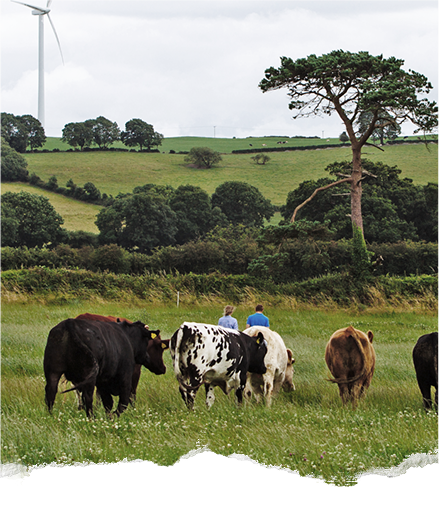Pasture raised organic beef
Ireland enjoys the longest grass growing season in Europe due to the temperate climate, plentiful rainfall and fertile soils. These conditions provide optimal base conditions for a low-input, pasture-based system for European organic agriculture production.
With 80% of agricultural land dedicated to pastures, this allows cattle and sheep to remain outdoors in nature for most of the year where they can graze on fresh grass, 220 days on average. During the winter months, they are fed preserved grass known as silage, meaning their diet is predominately grass based.
As synthetic fertilisers are not used in organic production, clover, which is part of the legume plant family, offers an alternative solution for organic farmers by working with natural systems and cycles within plants and the soil. Clover fixes nitrogen in the soil in a process called nitrogen fixation. In simple terms, this process involves the roots of the plant forming a symbiotic relationship with bacteria in the soil. The bacteria convert nitrogen from the atmosphere into a form that clover can use so that it can in turn release nitrogen into the soil, nourishing the surrounding plants.
Nutritional benefits of pasture raised meat
lower in saturated fat
higher in omega-3 fatty acids
higher in vitamin A and vitamin E

Nutritional benefits of pasture raised meat
lower in saturated fat
higher in omega-3 fatty acids
higher in vitamin A and vitamin E
Find out more about:
Traceability
Ireland